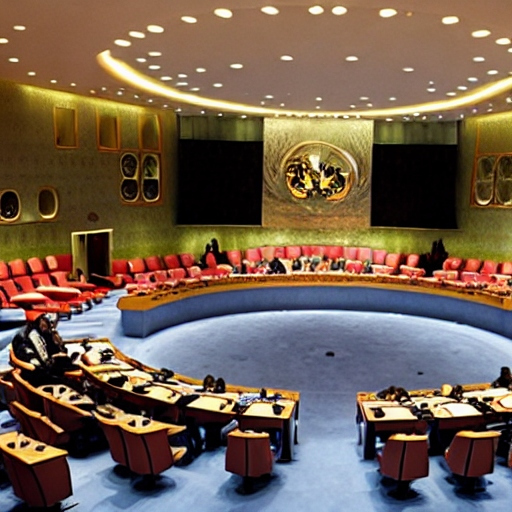In its first discussion on artificial intelligence (AI) and related concerns, the United Nations Security Council heard from a number of world leaders who emphasized the danger the technology may provide in the hands of malicious individuals.
In his remarks to the meeting, U.N. Secretary-General Antonio Guterres warned that “the malevolent use of AI systems for terrorist, criminal, or governmental goals might result in horrendous levels of fatalities and destruction, widespread suffering, and severe psychological harm on an inconceivable scale. “Generative AI provides a great deal of room for both good and bad on a large scale.
He continued by saying that the hazards are considerably greater now and might be catastrophic or existential. We are failing in our obligations to both the present and future generations if we do not take action to address these threats.
In the past, Guterres has advocated for the establishment of a U.N. watchdog to track AI research and application globally, and he has welcomed requests from some member nations to take a similar course.
The acting deputy representative of the United States to the United Nations, Amb. Jeffrey DeLaurentis, attempted to draw attention to the advantages and possibilities of AI in areas like crop management, weather forecasting, and medical evaluation.
According to DeLaurentis, when used properly, AI can hasten the achievement of sustainable development goals. However, it also has the potential to “compound threats and intensify conflicts” by improving cyberoperations and raising the possibility of successful disinformation.
He urged collaboration with private industry and activists, emphasizing that we welcome this discussion to learn how the Council can strike the right balance between maximizing AI’s benefits and mitigating its risks. Experiences have shown us that success comes from working with a variety of actors, he said.
DeLaurentis referred to the effort the United States has previously done to address the issue, emphasizing the 2022 blueprint for an AI Bill of Rights as well as military integration from the Biden administration.
The Security Council meeting was presided over by Britain’s James Cleverly, secretary of state for foreign, commonwealth, and developmental affairs. Cleverly asserted that the biggest AI-induced changes are still to come, happening on a scale that is “impossible” to comprehend and providing “immense” benefit for humanity.
According to him, AI will significantly change every facet of human existence, with a particular emphasis on its capacity to “enhance or disrupt global strategic stability.”
According to Cleverly, it calls into question our core beliefs about defense and deterrence. It raises ethical issues regarding responsibility for deadly military choices.
The global governance of revolutionary technologies must be shaped immediately as a result, he continued, as AI has no concept of borders.
Cleverly referred to the U.K.’s founding principles as four “irreducible principles,” which he believes the U.N. could benefit from as well. These values include the need for AI to uphold the rule of law and human rights, support freedom and democracy, be safe and predictable by design, and foster public trust.
As we cross the threshold into a strange world, let us work together to ensure peace and security in that spirit, he said.
Not all nations shared this idealistic viewpoint, with the Chinese government noting that U.N. regulations must take developing nations’ perspectives into account because some “developed countries” have rushed to regulate AI.
Zhang Jun, the Chinese ambassador, warned that some industrialized nations intentionally block other nations’ efforts to develop their own technologies and erect technological hurdles in an effort to gain technological hegemony. China is adamantly opposed to these actions.
Representatives from Japan, Mozambique, and the United Arab Emirates were among the other speakers.








